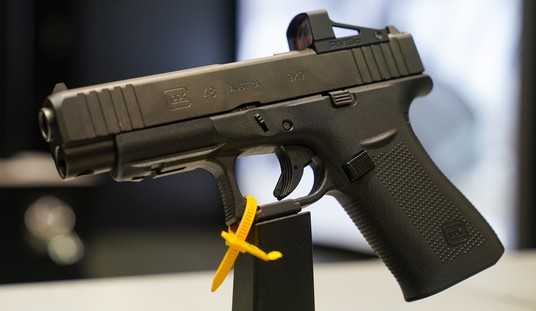Winchester has won the contract to supply 9mm NATO ammunition for the M17 pistol, a version of the Sig Sauer P320 that was recently announced as the winner of the Army’s Modular Handgun System (MHS) competition.
Winchester has been awarded as the ammunition supplier for the U.S. Army Modular Handgun System (MHS) program, considered one of the most important military handgun contracts in recent history. Winchester will supply Full Metal Jacket and Special Purpose ammunition in support of the MHS program.
“This is a significant opportunity for Winchester to continue its steadfast support of the U.S. military, just as we have for decades,” said Brett Flaugher, President of Winchester Ammunition. “We are honored to work with SIG SAUER as part of the MHS contract.”
On January 19, 2017, it was announced that SIG SAUER would be the next supplier of pistols for the United States Army, replacing the M9 pistol, which had been in service members’ holsters since the mid-1980s. Winchester, a current provider of ammunition to the U.S. government, collaborated with SIG SAUER in supplying ammunition for the rigorous MHS testing. The testing began in August, 2015.
“Partnering with Winchester to provide the U.S. Military with the Modular Handgun System is a point of pride for each and every employee of SIG SAUER,” said Ron Cohen, President and CEO of SIG SAUER, Inc. “Winchester has a long history of supporting our service members, and we are honored to collaborate with them on this project.”
The contract includes both full-metal jacket (FMJ) training rounds and jacketed hollow-point (JHP) “special purpose” ammunition, the latter of which will be issued to military police and soldiers serving in combat zones. JHP pistol ammunition has already been used by some SOCOM units in the War on Terror.
The shift to embracing hollowpoints for general issue military use was foreshadowed in 2015.
Section 6.5.4.4 of the DOD manual, “Expanding Bullets,” states that “[t]he law of war does not prohibit the use of bullets that expand or flatten easily in the human body.” Hollow point bullets “are only prohibited if they are calculated to cause superfluous injury.” The manual goes on to provide three reasons why expanding bullets are lawful for use in armed conflict:
(1) The 1899 Declaration on Expanding Bullets “only creates obligations for Parties to the Declaration in international armed conflicts in which all the parties to the conflict are also Parties to the Declaration” (the United States is not Party to the Declaration).
(2) The Defense Department determined in a 2013 review that the 1899 Declaration does not reflect customary international law.
(3) Expanding bullets as manufactured today are not “inherently inhumane or needlessly cruel.”
These rationales represent a significant shift in policy that Judge Advocates practicing international law need to understand.
First, the manual is absolutely correct in reciting the basic principles of international law that make the 1899 Declaration non-binding on the United States. The United States wisely did not sign the Declaration, in large part because the restriction presented to the 1899 Peace Conference was the result of both a sensationalized German study on expanding bullets and the political and military motivations of Britain’s European rivals. Simply put, the American representative, Captain William Crozier, recognized that the ban was nonsense and proposed language that instead would have prohibited bullets that “inflict unnecessarily cruel wounds.” The United States has consistently maintained this position since 1899, and despite the International Committee of the Red Cross’s (ICRC) assertion in their 2007 Customary International Humanitarian Law study that the restriction is customary international law (CIL), the Defense and State Departments correctly determined in 2013 that the Declaration is not CIL. While the details of the inaccuracies of the ICRC IHL study as applied to expanding ammunition are beyond this discussion, there is little doubt that DOD found that neither the usus nor opinio juris surrounding expanding ammunition support its prohibition for use in armed conflict as CIL.
Second, the manual asserts that the expanding bullets are not per se illegal unless they are calculated to cause superfluous injury. While the Rome Statute of the International Criminal Court (ICC) lists as a war crime “[e]mploying bullets which expand or flatten easily in the human body, such as bullets with a hard envelope which does not entirely cover the core or is pierced with incisions,” the Elements of Crimes to Article 8 of the Rome Statute requires that a perpetrator be “aware that the nature of the bullets was such that their employment would uselessly aggravate suffering or the wounding effect.” Ultimately, the DOD manual finds the “crime only applies to expanding bullets that are also calculated to cause superfluous injury and does not create or reflect a prohibition against expanding bullets as such.”
Long story short (or is it too late?), neither the oft-incorrectly cited Geneva Convention nor the 1899 Hague Convention (of which the United States is not a signatory) prohibit the use of hollowpoints, and the Army is embracing them for war.
JHPs have long been used by law enforcement and “regular Joes” who know that hollowpoints both do a better job of stopping threats and reducing the risk of over-penetration which can lead to innocent bystanders downrange of the threat taking rounds through the body of the target.








Join the conversation as a VIP Member